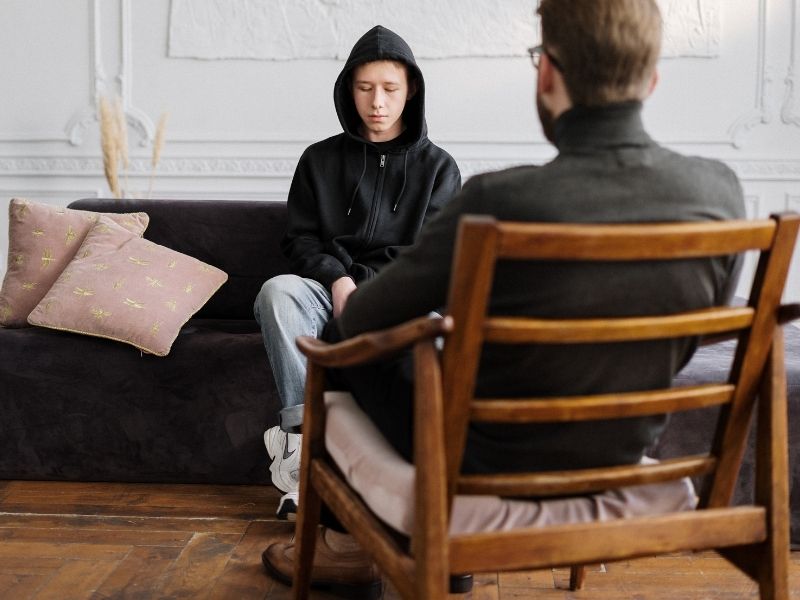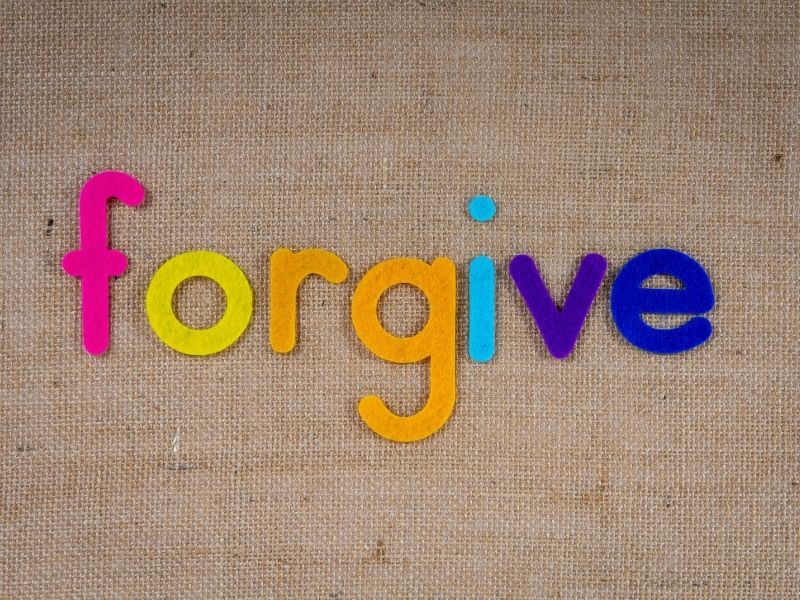We’ve all been hurt by other people before, and likewise, we too have done the same in hurting others as well; it’s a cycle that we all go through. Nevertheless, there’s no denying the pain we feel, especially when it’s someone close to us who has caused us that hurt. Often, we may feel the urge to hold on to grudges, desire for revenge, or simply take the less complicated route by running away from it all.
Let’s face it, it’s hard to deal with our pain, it’s hard to be the bigger person in the relationship, and it’s hard to take a step back and reflect on the situation with unbiased lenses. But you know what? That’s perfectly okay. Learning how to forgive and forget is a gradual process. It takes time and it certainly doesn’t come easily.
Learn How To Forgive And Forget By Acknowledging Your Pain

To begin the journey of forgiveness, you must first acknowledge the pain. This phase requires you to properly confront your feelings and the events that led up to them. To overcome your pain, you need to be able to fully understand why you feel the way you do. Think back to the situation and ask yourself questions that will help you clarify what exactly happened:
- Who hurt you and what was their reason for hurting you?
- What is the context of the situation?
- How exactly did this person wrong you?
- What are the resulting effects in your life?
- How has this affected your relationship with the person?
- How did you feel back then and how do you feel now?
Let the events run through your mind, as you search your answers, and let them pass through. Allow yourself to feel whatever emotions you need to feel and welcome them without reservation. You don’t have to react nor act on those emotions. It’s better if you don’t because you don’t want to do something that you’ll regret later on. But just let yourself truly feel, so that eventually those feelings have no hold on you anymore.
Ensure That You Manage Your Emotions In A Safe And Healthy Way

The challenge that comes with reflection, though, is being as objective as possible. In trying to be honest with your feelings, you’re also bringing back all the grieve and anger you initially felt. These negative emotions can escalate very quickly and get out of hand without you realising. If they’re not properly dealt with, they may continually grow larger till they’re too ingrained within you.
The solution? Try to find an outlet that will help you control and release your feelings in a safe, healthy manner. It could be calling someone close to you whom you fully trust to have a good venting session. You could also get a second opinion which will expand your perspective, encouraging you to look at the situation from all angles. Plus, as they’re listening to your story from a neutral, third point of view, they’ll be able to give their opinion without any bias. Going to therapy may be a better choice if you’re truly struggling with confronting your emotions.
Alternatively, if you’re not quite ready to talk to anybody yet, you could also take up journaling as another way to tackle your emotions. For some, aggressive exercises, such as kickboxing and martial arts, are great outlets for taking out their frustrations. Meanwhile, others may prefer the calmer route of self-meditation and prayers. At the end of the day, you should engage in whichever activity helps you best in learning how to forgive and forget.
Understand That You Must Truly Want To Forgive And Forget

You, yourself, have to decide on whether you want to forgive someone. No one can (and shouldn’t) coerce you to forgive. It has to be from your own free will. One major issue in our society is that we tend to pressure others to instantly forgive when they may not be ready to in the first place.
Telling someone to “just forgive and forget” so they can move on with life is easier said than done because the truth is, no one can just flip a switch and start forgiving someone from the get-go. Hence, don’t try to convince yourself that you’re fine or that you’ve forgiven someone when you know you haven’t. You’ll only be suppressing your feelings and delay healing. Remember, your journey to forgiveness is your own. How long you take to grieve before you are finally able to let go of the pain is entirely up to you.
Empathise With The Person Whose Actions You’re Trying To Forgive And Forget

Sometimes, the people who hurt you may not have done it intentionally. Even if they did, it could be coming from a place of hurt as well. Recognising this enables you to see people as they are; flawed and incredibly human. It keeps you from vilifying the person just so you can feel better about yourself. However, this doesn’t mean you’re excusing their behaviour for what they did.
You’re not justifying their actions, but instead trying to understand them. When you understand and acknowledge the other person’s humanity, you begin to slowly let go of your resentment. You’re shifting your focus and taking a step forward as you gradually begin to forgive and hopefully forget too.
Why It’s Important To Forgive, Forget, And Let Go

Forgiveness is a gift that not only benefits the other person but yourself too. It allows you to heal and grow stronger as you liberate yourself from your pain. By letting go of your unforgiveness, you’re also letting go of your own self-loathing. Marianne Williamson once said, “Unforgiveness is like drinking poison yourself and waiting for the other person to die.” So, don’t let the bitterness of unforgiveness prevent you from healing and gaining back your happiness.
Furthermore, studies have shown that forgiving someone can bring you many health benefits. One of them is a decrease in your stress levels, which in turn, can improve other aspects of your mental and physical health. Having better psychological and physical health will leave a positive effect on your overall well-being. This will translate into forming more fulfilling relationships with both yourself and other people.
Other Things To Consider When Forgiving And Forgetting

It’s entirely okay to forgive but not forget or to forgive without reconciliation. Asking you to completely forget about the hurt someone has caused you is an unfair thing to do. However, you can let go of the pain you associate with the memory, and hopefully, with time, you’ll be able to forget too.
Similarly, it’s also unfair to ask you to reconcile with the offender, because you can’t control their feelings towards you. You can’t force reconciliation on them when they don’t want to reconcile with you and sometimes, there’s no going back with certain relationships. We hope that our guide helped show you how to forgive and forget, and wish you all the best in your journey to healing.

